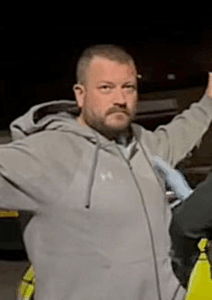
| AGRESSION DATE | VICTIM | PLACE | OUTCOME | LINK |
|---|---|---|---|---|
| 2025.07.24 | MURNEY, Stephen | At home | Arrested | Read |
| 1981.05.05 | SANDS, Bobby | Maze, County Down, Northern Ireland | Died of starvation after a hunger strike in a prison cell | Read |
| DATE | LOCATION | EVENT | ARRESTS | CHECKS | VIOLENCE | SOURCE |
|---|---|---|---|---|---|---|